Latest India-Pakistan flare-up has historical roots
People hold posters of Pakistani army chief Gen. Qamar Javed Bajwa and Prime Minister Imran Khan during an anti-India rally, in Islamabad, Pakistan, Wednesday, Feb. 27, 2019.
March 11, 2019
An escalation that could threaten nuclear exchange over the disputed province of Kashmir resurfaced this week as India and Pakistan added to the history of their violent rivalry.
The conflict reignited on Feb. 14 when a suicide bomber from the separatist group Jaish-e Mohammed killed 40 Indian paramilitary soldiers. The terrorist attack occurred during a training exercise in the contested region of Kashmir that borders both India and Pakistan.
India retaliated two weeks later by bombing what it stated were terrorist training camps on the Pakistan side of the border. Pakistan retaliated with its own airstrikes, which grew into dogfights between jets that resulted in the capture of an Indian pilot after being shot down by the Pakistan military. The pilot was returned in a highly publicized exchange between the two rivals, but tensions remain strained. The stakes are especially high because the two countries have nuclear capabilities, and this incident is the most violent confrontation in decades.
“This is kind of a level of escalation we haven’t seen in the past,” DePaul political science professor Scott Hibbard said. “Not just throwing artillery shells across the line of control — this is Indian jets bombing Pakistan and that’s a really dangerous escalation.”
The origin of the conflict can be traced back to the partition of India and Pakistan by Britain in 1947. The borders were intended to shape the Muslim state of Pakistan and keep India predominantly Hindu. The Hindu leader of the Muslim-majority border province Kashmir opted to join India instead of Pakistan, sparking the first of three wars over the territory. The stakes of the standoff were raised after both countries became nuclear-capable in the 1990s.
Resolution for the Kashmiri population that sees them joining Pakistan or becoming independent is difficult because it has become a symbol of national pride for both countries. There have also been complaints of high unemployment, human rights abuses perpetrated by security forces and violence spilling over from battles with insurgent militia groups.
These insurgent groups have had a history of being backed by Pakistani intelligence services, though the Pakistani government has repeatedly denied these claims and there is no evidence to link Pakistan to the most recent bombing. This support of militant organizations has to do with Pakistan’s past of not being able to win an outright war against India, according to Hibbard.
“(They) are trying to do everything they can to make life increasingly difficult for India in Kashmir as a way of furthering their strategic interests and putting pressure on India to either stay out of Afghanistan, or stay out of Pakistan or stay out of Kashmir,” he said.
The leadership of both countries also plays a role in continuing the conflict. Populist Prime Minister Imran Khan was recently elected in Pakistan and has been pursuing hardline policies that include his stance on Kashmir. Indian Prime Minister Narendra Modi is a Hindu Nationalist who faces an upcoming reelection and has been capitalizing on the recent border crisis.
Dr. Kalyani Menon is a professor at DePaul who focuses on South Asian culture and religion and says that the conflict in Kashmir has provided an opportunity for Modi before the election. Modi’s government is on the defensive after being implicated in corruption scandals and faced with a report showing rising unemployment levels.
“In this context, the conflagration in Kashmir changes the narrative and Narendra Modi would like to use it to project himself as a strong leader who acted decisively after an attack,” Menon said.
“Historically, if such a conflict occurred the U.S. would probably act a mediator,” said William Denton, a professor at DePaul who focuses on American foreign policy. “That does not seem to be the case now.”
A sustained struggle between India and Pakistan would risk drawing China in as a participant. It could also become difficult for the United States to deal with terrorist groups in the Northwest tribal territories of Afghanistan and Pakistan, which it has done with the cooperation and permission of the Pakistani government.
“A conflict would distract from this effort,” Denton said.
Although the fighting over Kashmir has cooled down for now, the underlying rivalry and history over Kashmir remain unresolved and the threat of escalation remains.


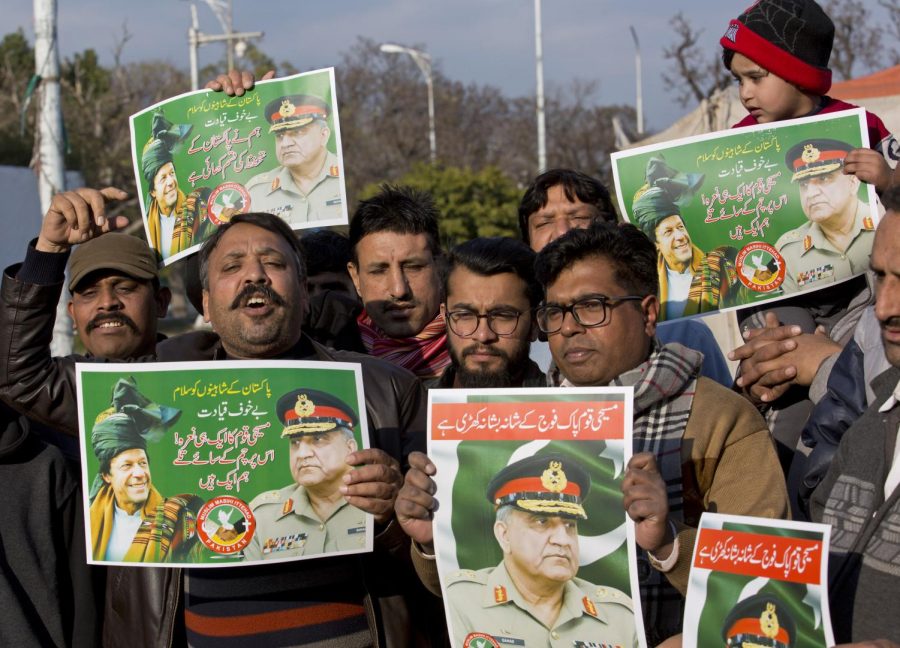


![DePaul sophomore Greta Atilano helps a young Pretty Cool Ice Cream customer pick out an ice cream flavor on Friday, April 19, 2024. Its the perfect job for a college student,” Atilano said. “I started working here my freshman year. I always try to work for small businesses [and] putting back into the community. Of course, interacting with kids is a lot of fun too.](https://depauliaonline.com/wp-content/uploads/2024/04/ONLINE_1-IceCream-300x200.jpg)







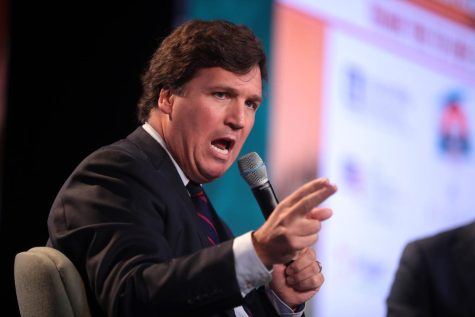

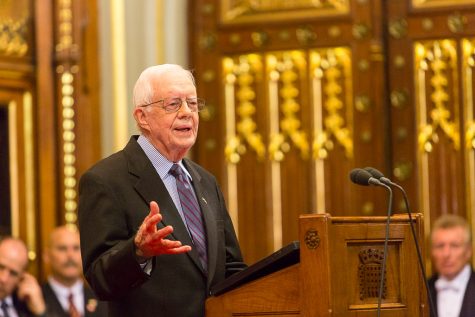
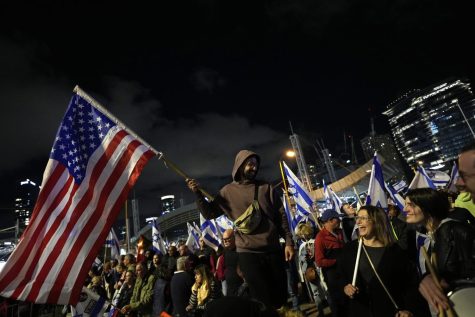
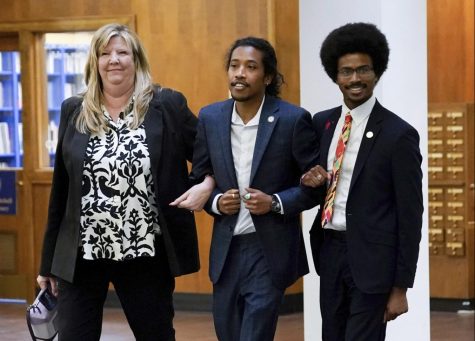
samir sardana • Apr 24, 2020 at 11:07 am
The Kashmir Genocide
The Hindoo Military and Para Military regularly rape and kill Kashmiri women.In fact the Hindoos are known to cut off teh breasts and tear out the ovaries of the Kashmiri women so that they cannot feed their kids !
Even the Nazis did not do this ! They just gassed the hapless Jews !
People talk of ISIS and the Yazidis ! But that is nothing !
In the Hindoo Religion – THIS TREATMENT OF WOMEN AND SLAVES OF WAR IS SPECIFICALLY AUTHORISED IN THE SCRIPTURE.PER SE. THE SCRIPTURE !
What will the Hindoos do the Kashmiri women ?
https://dindooohindoo.page.tl/ISIS_-Dindoo-Yazidi.htm
The Rapes of Krishna
· Linga Purana section 1.69.82 “The excessively strong one, of unequalled exploit, Krsna took up sixteen thousand one hundred girls for his own pleasure.”
· Srimad Bhagavatam 10.58.58 Lord Krishna “also acquired thousands of other wives”, equal to these when He killed Bhaumasura and freed the beautiful maidens the demon was holding captive.”
· Srimad Bhagavatam 10.58.31 My dear King, Lord Krishna”forcibly took away” Princess Mitravin da, the daughter of His aunt Rajadhidevi, before the eyes of the rival kings.
Forcing women of enemy soldiers to become prostitutes
· Matsya Purana 71.26-30 ”Once upon a time thousands and thousands of the demons (Danavas, Asuras, Daityas and Raksasas) were killed in the war between the Devas and the demons.
o Indra told their “numberless widows and those women” who were “forcibly seized and enjoyed”, to “lead the life of prostitutes” and remain devoted to the kings and the Devas.
o Indra continued, You should look upon, with equal eye, the kings your masters and on Sudra. All of you will attain prosperity, according to your fate. “You should satisfy those who would come to you with adequate sum of money”, to enjoy your company, even if they be poor.
Sex Slaves
· Matsya Purana 71.44-45 ”That Brahmana should be well fed and be devoutly looked upon as cupid,for the sake of sexual enjoyment. Each and every desire of that Brahmana should be satisfied by the woman devotee. She should, with all heart and soul and with a smile on her face, yield herself up to him.”
· Mahabharata 1.102 ”Bhishma cut off, with his arrows, on the field of battle, bows, and flagstaffs, and coats of mail, and human heads by hundreds and thousands…Then that foremost of all wielders of weapons having vanquished in battle all those monarchs, pursued his way towards the capital of the Bharatas, taking those maidens with him.”
· Mahabharata 13.44 says that bridegroom may forcibly take away the girl he likes to “marry even after killing or beheading the girl’s kinsmen” and Manu Smriti 3.33 says that sometimes the girl forcibly taken away may cry and weep and this is permitted in Mahabharata 1.73.
· Narada Smriti 12.78 Intercourse is permitted with a wanton woman, who belongs to another than the Brahman caste, or a prostitute, or a female slave, or a female not restrained by her master (nishakasini), if these women belong to a lower caste than oneself; “but with a woman of superior caste, intercourse is prohibited”
· Agni Purana 211.37-43 ”…By making the “gift of a female slave” to one of the foremost of the Brahmanas, a man becomes an inmate of the region of the Apasaras (nymphs)…”
· Agni Purana 223.23-29 ”…Duties payable on “importing female slaves” into the country should be determined with a due regard to the country imported from and the time of the import.
· Mahabharata 4.72 …And Krishna gave unto each of the illustrious sons of Pandu “numerous female slaves”, and gems and robes…
samir sardana • Apr 24, 2020 at 11:07 am
The Evil of the Hinooo vermin is not manifest to the white man.The white man sees only his innnate goodness in others – like a fool.
Much has been said and excoriated about the Jehadi suicide bombers and the 72 houris in heaven.It is an isolated verse in the Quran – in a time and a context to remove the attachment to worldly passions. Just an isolated verse !
The Thesis and Exegesis of mass murder and genocide and the fairies in heaven lies in THE HINDOO FAITH – IN THE VEDAS AND PURANAS ! It is not Islam ! This will used the Hindoos for mass rapes and genocide in Kashmir ! Except that the Hindoo will rape in Kashmir and then look to the fairies in his heaven as the icing on the cake !
The White man has to awaken !
SIS has a natural bond with Hindoos ! The conceot of 72 houris in heaven is all inspired from the Hindoo Scriptures
https://dindooohindoo.page.tl/ISIS-%26-Dindoo-Houris.htm
Parashara Smriti 3.28-29 Celestial damsels seize for themselves, and “take delight with the hero”,whose “body is wounded or cut by arrows, clubs, or maces”.
Thousands of celestial damsels, rush forward in a hurry “towards a hero killed in battle”, each proclaiming, ‘He is my lord, he is mine’.·
Parashara Smriti 3.31 If victorious, wealth is won; if “death results, beautiful women fall to his share”; since this corporeal frame is liable to perish in an instant’s time, why should we be shy of meeting death on a field of battle?·
Mahabharata 12.98 ”Foremost of Apsaras, numbering by thousands, go out with great speed (“for receiving the spirit of the slain hero”) coveting him for their lord.”
DeviBhagavatam 3.15.10-13 ”Some warriors on being slain in the battle instantly arose in a celestial car to the heavens and was seen “addressing the celestial nymph,
who came already within his embrace”, thus “O one of beautiful thighs. Behold! how my beautiful body is lying on the earth below!”
samir sardana • Apr 24, 2020 at 11:06 am
The Kashmir Genocide
Y the evisceral hate of the Kashmiris by the Hindoos ? They are not Indians by DNA,Race or Religion. Is it the white skin complex or the fact that the ancestors of the Kashmiris pillaged Hindoosthan and also raped/ravished Hindoo women and destroyed Satanic Hindoo Temples and Idols ?
What is wrong with destroying Hindoo Temples and Idols or bombing them ? It was done by Moses,Abraham,Jesus,John the Baptist ,Prophet of Islam,Gobind Singh etc.Ghazni and his tribes just followed the path of the prophets !
And what is wrong with raping Hindoo women (wives of Brahmins/ Banias etc.)? Hindoo Gods raped Hindoo women and wives of Brahmins all the time ! In reality – the Mughals fertilised the Indian race and created a new race – one which the Indians consider to be a martial hindoo race.
Y is there a lack of intellectual defense among Islamists of the so called ravishing of the Hindoo Frigid Vaginas by the Mongols, Afghans and Mughals ?
It is what they deserved ! The Hindoo Gods created Brahmins just to rape their wives ! The best practice model was that the Brahmin used to meditate in the forests and be celibates – inspite of having beautiful wives !
The vile of the Brahmin was that he used his wife as bait to tempt the Gods to rape his wife – and then cursed the Gods – with a pardon contingent upon on a boon of writing some scriptures and limited morrtality !
Is there more evil in this cosmos ? The Empirical and Theological proof is given below :
Sage Atri – As Shiva,Indra and Vishnu , “raped his wife Anasuya”
Sage Gautama – As Indra “raped his wife Ahilya”, by stealth he said the following from the Skanda PuranaV.iii.136.2-16
O beautiful la dy of uncensured features, resort to me, the king of Devas, “Sport about with me”.
What will you do with this Brahmana “who has become lean and emaciated”, due to his “over- zealousness for purity and conventional rites and austerities” and Vedic studies
Lord Rama’s father – His wife had “sex with a horse and 11 Brahmins”, to make Lord Rama
Lord Rama’s Story – “Vishnu raped Tulsi/Vrinda”, as her husband , was a Brahmin – then the “whore cursed Vishnu” to be “born as Rama” and have “his wife raped by Ravana” – all “due to the impotentica of 1 Brahmin”
What did the Aswins say before they raped the Brahmin Sukanya
Mahabharata 3.123
“O divinely beautiful damsel, do thou, forsaking Chyavana accept one of us for husband. It behoveth thee not to spend thy youth fruitlessly…”
Ved Vyas ,who wrote the Mahabharata, was the “bastard son”, of Rishi Parashar and Satyawa
As per the Harivamsa Purana,Sage Vashishtha’s daughter , Shatrupa had sexual relations with Daddy Cool
It is the cosmic wheel of providence as nothing can happen which Allah does not will
samir sardana • Apr 24, 2020 at 11:05 am
What about the Kashmir Genocide ?
The Ruling political dispensation of India (Hindoosthan) is a front of the RSS (a quasi wanna be Nazi party).The RSS in its documented history and intellectual posits has admired and co-opted and co-owned Hitler – not merely as a Role Model – but as a Kalki Avatar – or an Avatar of Vishnoo – the Hindoo God !
The SS part of the RSS is a lift from the Nazi SS and the “R” stands for “Rats”
The RSS is infested by the vermins of the Brahmin/Bania/Kayastha triad – which represent the priestly and trading classes of Hindoosthan who never fought a war for their nation – but incited the same and also carried out the largest unknown genocide in History – that of the Buddhists
The Bhagwad Gita JUSTIFIES genocide, w/o remorse,guilt and WITH DIVINE SANCTION.The Indian Military and Para Military,is a race of criminal mercenaries called Kshatriyas – who were the offspring of rapes by the Huns,Mongols,Sakas, Scythians,Persians, Parthinians,Greeks 1500-2000 years ago.They were discarded by their races and interbred and were treated as outcastes for centuries – until the Brahmins co-opted them as criminal mass murderers (around 1000 years ago) – and who are now in Kashmir !
Nazis are on record JUSTIFYING their actions based on the thesis of the Bhagwad Gita explained in this note.
History Records that the Nazis were ALSO inspired by the Gita, per se
https://dindooohindoo.page.tl/Nazis-and-Gita.htm
Why the “Nazis and Hitler and Himmler”, love the Gita
“Dindoo Hindoo Bindoo Gandoos” consider “Hitler to be a Vishnoo Avatar”
When Krishna the Bhagvat was fed up rying to explain to “Arjuna the – why he “needed to exterminate his foes” – this was the “last attempt” in the 18th Chapter of the Gita – the logic is as under :
Lumen Naturale 1 – There are “5 precedents to sense-perception and action”
मूल श्लोकः
शरीरवाङ्मनोभिर्यत्कर्म प्रारभते नरः।
न्याय्यं वा विपरीतं वा पञ्चैते तस्य हेतवः।।18.15।।
18.14 The locus as also the agent, the different kinds of organs, the many and distinct activities, and, the “divine is here the fifth”.
Lumen Naturale 2 – There “5 are causes of all action” and are “independent of the mind and body dualism” of Descartes and “also the Soul “!
मूल श्लोकः
यस्य नाहंकृतो भावो बुद्धिर्यस्य न लिप्यते।
हत्वापि स इमाँल्लोकान्न हन्ति न निबध्यते।।18.17।।
18.15 For whatever action a man undertakes by his body, speech and mind, whether right or wrong,i.e., enjoined or forbidden by the Sastras, “the following five”, are its causes:
Lumen Naturale 3 – Hence,you can “kill,murder and rape” – provided it is done with “no ego and no feelings “- for it is the “Act of the Divine” ! Just like the Nazis ! “Heil Krishna,the Bhagwat “!
मूल श्लोकः
अधिष्ठानं तथा कर्ता करणं च पृथग्विधम्।
विविधाश्च पृथक्चेष्टा दैवं चैवात्र पञ्चमम्।।18.14।।
18.17 He who has not the “feeling of egoism”, whose intellect is not tainted, he does not kill, nor does he become bound-“even by killing these creatures” !